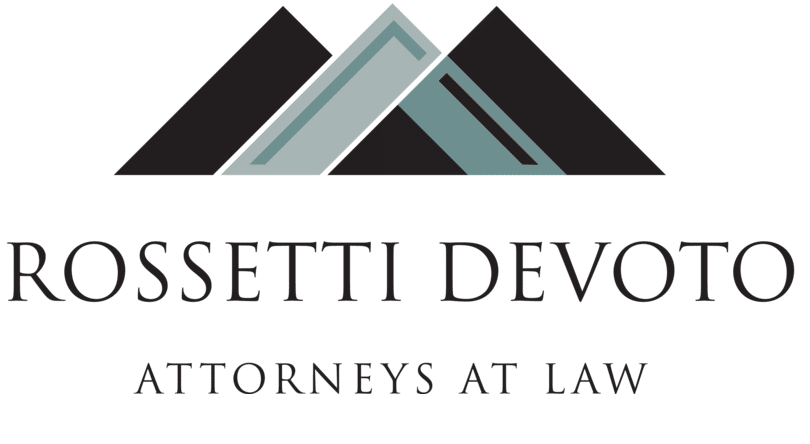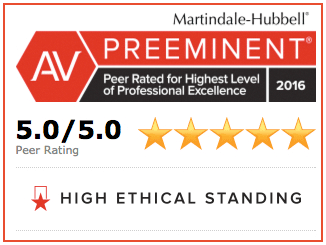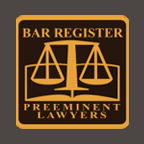Unsafe Products FAQs
1. How can I tell whether or not any of the products I own are defective?
One of the best ways to determine if a product you own is defective is by your own observations of the product while in use. Does the product perform the way the manufacturer represents that it should perform? If not, the product may be defective. Unfortunately, many if not most defects are not apparent to users and are hidden within the product not surfacing until the product has caused injury. A great way to identify dangers before they cause injury is to check with the Consumer Product Safety Commission.
You can write them at:
U.S. Consumer Product Safety Commission
Washington, D.C. 20207-0001
or log onto their website at www.cpsc.com. The CPSC will list products that have been recalled by the government or voluntarily by manufacturers. Stop using any product you think is defective and call the manufacturer and the CPSC immediately.
2. What constitutes a defective product?
Under the New Jersey Product Liability Act, a product is defective if it is unfit, unsafe and unsuited for its reasonably intended and foreseeable uses. The focus is not on the conduct of those making or selling the product but rather on the product itself. Stated another way, even if a company used all the care in the world in making its product, if it is determined to be defective, the company is liable.
There are three ways that a product is generally considered defective. First, a product can be defective by design. In other words, the design of the product causes it to be dangerous even though the manufacturer made it exactly as specified in the design. The second way a product is defective is if it contains a manufacturing flaw. For example, a product could be designed properly and safe but because of an error somewhere in the manufacturing process, one or more of the products could become dangerous because of that flaw. The third way a product can be defective is where the manufacturer fails to warn of the inherent dangers associated with the use of the product thereby making the product dangerous to unsuspecting consumers.
3. What should I do if I have been injured by a defective product or a product that I think might be defective?
If you have been injured by a product you believe may be defective, stop using the product immediately. Depending on the size of the product, make sure all reasonable steps are taken to preserve the product in its exact condition at the time of the accident. Photograph the product at the place of the accident and make sure an investigation is conducted immediately, either by the police in your town, your employer if it happens at work or by your attorney’s investigator, if you see a lawyer. Important evidence must be preserved even if you are not in control of the evidence. The failure to do so can make you liable to the other parties in the case.
4. I rarely read all of the manuals and warnings that come along with products I purchase. Does that matter if I’m injured at a later date?
It is a good practice to read all of the warnings and manuals that accompany the products you purchase. Failing to read them does not prevent you from bringing a lawsuit since many times the manuals and warnings fail to convey the real danger of certain products. In any event, by reading the manuals and warnings you strengthen your case if you are later injured by a defective product.
5. How can I tell if my lawyer has previous experience in dealing with product liability lawsuits?
Ask your lawyer what his or her experience is in handling product liability cases. Also ask friends and relatives for referrals and then interview the two or three firms you believe are best. From there, make your choice based on the lawyer’s experience, how well organized the lawyer is, whether his or her staff is attentive to your needs and follow your instincts.
6. I was injured at work by a product that I believe was defective but I was told I couldn’t sue my employer. Is that true?
Generally speaking, in New Jersey and most other states, you cannot sue your employer or another employee for injuries you sustain at work because you are entitled to workers’ compensation even if the employer is negligent. However, injuries involving defective products are usually not caused by your employer and may be caused by the manufacturer, the seller, the installer, or the maintenance company. Nothing prevents you from bringing a lawsuit against these entities for their actions in creating or maintaining a defective product. Moreover, an employee injured at work is generally not considered to be negligent for working on a defective machine in the workplace because he or she is doing his or her job.
7. Does the store that sells a defective product have any responsibility?
In New Jersey, retailers and other sellers of defective products generally no longer have responsibility for selling defective products to consumers that they did not make. Certain exceptions do apply to when you can sue a retailer including, when the manufacturer is from a foreign country, when the manufacturer has no insurance, and when the manufacturer has filed bankruptcy, to name a few.
8. How many people need to be injured by a product before it can be considered defective?
There is no set amount of people that need to be injured by a product before it’s deemed to be defective. However, often times we will find out through networking with other attorneys across the country that similar cases exist. In the law, we call these “other similar incidents” or OSI’s. OSI’s really help bolster your case and we always affirmatively seek out other similar incidents, experts who were used and previous outcomes at trial and/or settlement.
9. I was injured by a product that I believe was defective but I later learned that I was unintentionally using it the wrong way. Does that mean I cannot bring a lawsuit?
No. In New Jersey you can still bring a lawsuit. Manufacturers not only have a duty to make products safe for its intended foreseeable uses but also for any foreseeable misuses of the product. Thus a yard equipment manufacturer probably isn’t responsible to foresee that consumers would use a lawnmower to cut their hedges but may be responsible to guard against hazards associated with the lawnmower for example, it is foreseeable, even though not a proper use.
10. Who determines whether a product is defective and how is that determined?
Generally, a jury of your peers determines whether the product that injured you is defective. Most civil jury trials consist of six jurors and two alternates. After hearing your case, they deliberate and come to a decision as to whether the product was defective, if the defect caused your injury and what amount of money, if any, would compensate you for your injuries including mental pain and suffering, lost wages, medical bills and the loss of life’s pleasures. However, a judge can make a preliminary decision as to whether your case has any merit at all and dismiss your case if you have not at least met certain minimum requirements in proving the product defect.
11. If the government has not issued a recall on a product, does that mean that the product is not defective?
No. The government does not always issue recalls on defective products and in many cases, the government becomes familiar with a defective product only after successful lawsuits have brought attention to the unsafeness of a product.
12. How long do I have to file suit if I’m injured by a defective product?
In New Jersey, the best rule of thumb to follow is that the minimum time in which to file a lawsuit in product defect cases is two years from the date of the accident. Exceptions do apply for minors, death actions, and others so you must contact an attorney immediately if you think you have a potential lawsuit so that you can obtain specific advice about your case.
13. What do I do if I’m injured by a product that I do not own?
Attorneys can file emergent motions to preserve evidence and have it turned over to them even before a lawsuit is filed. Since having the product that injured you is extremely important to your case, all efforts must be made to locate, preserve and take possession of the product immediately.
14. What do I do if I’m injured by a product that may be defective but I’m unsure of who manufactured it?
You do not need to know who manufactured a product but you do need to know where the product is so that experts in the field of machinery, engineering, accident reconstruction and safety and hazard analysis can inspect the product to determine its origin as well as any defects that the product may have.
15. What damages are recoverable in a lawsuit for injuries arising out of a defective product?
Generally, the same damages recoverable in other negligence cases are recoverable in product cases. The most common types of compensatory damages recoverable are: physical and emotional pain and suffering, disability and impairment, loss of life’s pleasures, medical bills and lost wages. Others may apply as well. In cases where the unsafe product causes a death, different damages apply which are set forth under the wrongful death heading.
16. What are punitive damages?
Punitive damages are designed to deter and punish conduct that is generally considered to be outrageous and either intentional, willful or extremely reckless. In New Jersey, punitive damages are capped at $350,000 or 5x the compensatory damages verdict, whichever is larger.
17. What happens if I am injured by a product but there are no witnesses to confirm what happened?
Not every case has witnesses other than the injured person himself. However, that is not fatal to a case since many times witnesses do not provide the best evidence because the emotional nature of being involved in the event or near to it can generally make them poor historians of that event. Accident reconstructionists and engineers are routinely called upon to recreate accidents even when there are witnesses. The physical evidence can be very persuasive even without witnesses and is often the best evidence of what happened.
18. I have three young children all under the age of seven, what types of products pose the most serious threats and hazards to their safety?
The Consumer Product Safety Commission keeps statistics of child-related deaths and injuries from unsafe products. According to the CPSC, 79% of injuries were to children under 15 years of age, and 45% were to children under age 5. The CPSC urges gift-givers to keep safety in mind when choosing toys for young children. The Commission requires labels to be on all toys marketed for children from 3 years old up to 6 years old if the toys pose a choking hazard to children under 3. The labels tell consumers that a toy is not safe for young children and why it is not safe.
The Commission offers consumers the following tips for safe toy buying:
1. Select toys to suit the age, abilities, and interest level of the intended child. Toys too advanced may pose safety hazards to young children;
2. For infants, and all children who still mouth objects, avoid toys with small parts that could pose a fatal choking hazard;
3. For all children under 8, avoid toys that have sharp edges and points;
4. Do not purchase electric toys with heating elements for children under 8; and
5. Immediately discard plastic wrapping on toys because it can cause suffocation.









